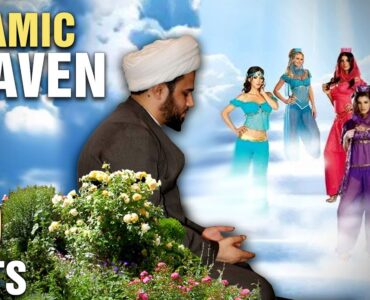
Beating Back ISIS
Every few days, we seem to wake up to another massacre committed by ISIS. And these are, of course, only the ones that the media reports. ISIS, with all its cells around the world, in reality, is committing massacres on a daily basis. We have become familiar with their crimes in Syria and Iraq since last summer. But now their latest play ‘field, we are learning, is Libya. And their latest scapegoats are the Copts of Egypt.
In a recent, 21-page long analysis in ‘The Atlantic, entitled ‘What ISIS Really Wants,’ Graeme Wood argues that the ISIS interpretation and application of Islam is one of many ‘legitimate’ manifestations of Islam. He nowhere argues that this is the only, or even the main, interpretation of the religion. Therefore, though it is important also to read and be aware of Wood’s critiques, it seems that many have been too quick in accusing him of contributing to the stereotyping of Islam.
For instance, the article of Jack Jenkins, on the website thinkprogress.org, ‘What the Atlantic Gets Dangerously Wrong about ISIS and Islam,’ dismisses him far too quickly. In my opinion, his dismissal is based on arguments that he reads into Wood’s analysis, rather than on actual affirmations Wood makes. We all need to form our opinions based on our own analysis of the arguments offered, but here are five takeaways that I propose, taken from the most recent events and their analyses:
- It would be far better for everyone if Muslim apologists stopped dissociating ISIS from some supposed ‘true Islam.’ As critics of Wood have argued, Islam is far from uniform. But this fact argues as much against the stereotyping of Islam as entirely violent as it does against claiming that ISIS has nothing to do with Islam. What the claim about Islam’s vast diversity (which I endorse vividly) argues for is that ISIS adherents are ‘legitimate’ Muslims, by the mere fact that they claim so themselves. Muslim apologists should stop feeling like they have to defend Islam by saying ISIS has nothing to do with Islam.
It seems to me that this instinctive attitude of denial that the pmajority of Muslims today are embracing, which results from the gut revulsion they feel towards ISIS, is motivated by an ‘honor/shame’ framework. We constantly read, both in the mainstream media as well as in the social media, that ‘ISIS tarnishes the image of Islam.’ In the ‘honor/shame’ framework, when a member of our community or group misbehaves, we have a tendency too quickly either to cover up for them, or simply to dismiss them as not belonging to us, out of fear that their behavior will reflect negatively on (i.e., tarnish) the group. But if we are convinced that Islam is diverse, due to the vast diversity of interpretations of its founding texts both historically and today, then Muslims that do not adhere to ISIS’ interpretation owe the world no apology for the criminality of ISIS.
- We need to understand ISIS for what it truly is: a deeply religious, political, fundamentalist, ‘restorative’ ideology, with long and deep roots both in history and in decades of radical preaching in certain types of mosques across the world. They are not simply a bunch of godless thugs, at least not in their own eyes. They are not simply using religion to serve other agendas. They are clearly and self-consciously religiously motivated. I do not, by any means, believe that ISIS’ interpretation of Islam comes even close to qualifying as a majority interpretation today. But I am convinced, based on Islam’s founding texts, based on parts of Islam’s history, and on some ways that the founding texts have been interpreted historically, that we are fooling ourselves when we simply dismiss ISIS’ claim to ‘legitimacy’ as a religious movement. On the other hand, I am not particularly fond of Wood’s argument that ISIS is chiefly an ‘apocalyptic’ movement. To a degree, most religious ideology is ‘apocalyptic,’ in the sense that it looks forward to the ‘final victory of God’ over evil and sin. Dismissing the seriousness of ISIS’ appeal, or attempting to marginalize them by comparing them to ephemeral sectarian groups like those of David Koresh or Jim Jones (as Wood does), I believe is also a mistake.
- Non-Muslim slanderers of Islam need to stop applying principles to Islam they would not accept being applied to themselves. Yes, ISIS members are Muslims since they claim to be so, absolutely ‘legitimate’ ones at least in their own eyes – and in the subjective realm of religious belief, that matters supremely. No, this does not mean that this is the only ‘legitimate’ manifestation of Islam. Muslims who do not abide by ISIS’ perverse interpretation of Islam do not bear the responsibility for ISIS’ actions. Non-Muslims have a responsibility to listen honestly to the way that the majority of Muslims today understand their religion, and they are invited to believe them and support them in their ideological fight against the monster of ISIS.
- Given the particular apocalyptic views of ISIS and its global recruits, which Graeme Wood highlights in his article, I agree with him that a massive ground-attack on ISIS is not the solution. This would only increase the legitimacy, and therefore appeal, of ISIS, by advancing the expectations of its own apocalyptic vision. Red lines should be drawn, and surely they already are, to ensure that ISIS does not gain more territory. Borders should be reinforced. Without pontificating too long about military strategy, I do believe that it is certainly the responsibility of states (particularly Iraq and Syria at the moment) to ensure and defend their territorial integrity, and to remedy if that integrity is in jeopardy. Seeking the support of their allies in doing so seems quite legitimate as well. By every means possible, ISIS’ ‘caliphal’ ideology needs to be delegitimized:
- undermine its territorial integrity;
- prevent it from expanding;
- minimize its image as a global player taking on the world; and,
- perhaps most importantly: prevent global jihadists from joining its ranks.
This brings me to my final point:
- When Muslim apologists feel that they need to reject ISIS as non-Islamic, they risk obstructing a more fruitful fight against ISIS consisting in drying-up the ideological pools of ISIS recruitment. Rather than dismissing ISIS’ interpretation of Islam as un-Islamic, it would be better to make a strong case for the reason why the ISIS interpretation is less legitimate than the one that promotes tolerance, love and brotherly/sisterly relations with non-Muslims. I am not saying that the apologists of Islam are not promoting these alternative interpretations and visions already. But I am saying that the argument that simply disowns the ISIS interpretation as ‘un-Islamic’ is drowning the more cool-headed conversation that builds a solid case for why the ISIS interpretation is heavily biased, and why it is certainly not viable for the world today.
Most important, and what is most often ignored by politicians and journalists, is the long-term solution to ISIS. How many more ‘repeats’ do we need before we understand that militant jihadi groups are a recurring phenomenon, and not a one-off monster that we can get rid of. Yes it is a monster, but this one grows seven more heads for each head that gets chopped off. A massive global movement needs to be launched to dry up the recruitment pools of ISIS. As I have said before, I believe that the ISIS recruitment pools are made up of the disenfranchised, those with nothing more to lose, those who have lost faith in modern forms of government and social systems, those angered and marginalized by the dictatorial, corrupt and self-serving regimes in the Muslim world that enjoy the support of the neo-colonial powers of the West. What is the world going to do about these realities? That’s what we should all be asking. This generation needs to stop distracting itself with temporary military solutions to the problem of religious radicalization. It needs to invest its efforts in economic development, in establishing organizations and NGO’s, and influencing the media, to drying up the recruitment pools of ISIS.
Though the evil we keep seeing perpetrated by the adherents of ISIS is in no way excusable or justifiable, the rest of the world is not completely innocent, given that our eyes are still not set on the long-term solutions to beating back ISIS.
Beating Back ISIS
750 – 004
Last Updated: 12/2021
Copyright © 2017-2021 Institute for the Study of Islam (ISI) | Institute-for-the-study-of-Islam-org | Discerning Islam | Discerning-Islam.org | Commentaries on Islam | © 2020-2021 Tips Of The Iceberg | © 1978, 1990, 2000 marketplace-values.org | Values In The Marketplace | are considered “Trade Marks and Trade Names” ®️ by the Colorado Secretary of State and the Oklahoma Secretary of State. All Rights Reserved.



